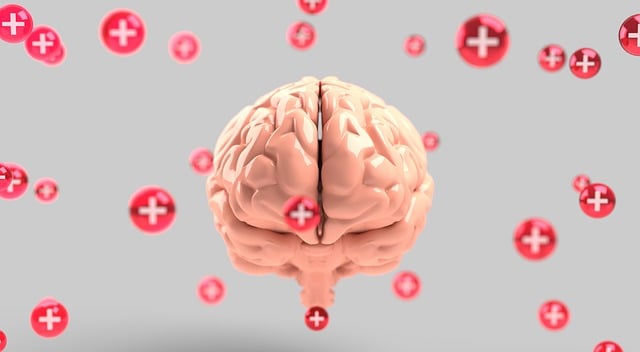Mental health counseling (also known as psychotherapy) is a powerful tool for managing diverse issues like anxiety, depression, and trauma. It offers personalized approaches such as cognitive-behavioral therapy (CBT) and mindfulness-based therapies, empowering individuals to achieve personal growth and improved well-being through coping strategies and enhanced self-awareness. Overcoming stigma and finding the right therapist are crucial steps in accessing effective mental health counseling.
Understanding Mental Health Counseling: Unlocking the Benefits

Mental health counseling, also known as psychotherapy or talk therapy, is a vital tool in addressing and managing various mental health issues. It involves a collaborative process between a trained mental health professional and an individual seeking support. Through open dialogue and exploration of thoughts, feelings, and behaviors, counseling provides a safe space to uncover underlying problems and work towards positive change.
One of the key benefits of mental health counseling is its ability to empower individuals by equipping them with valuable coping strategies. It helps people develop self-awareness, enhance problem-solving skills, and build resilience. By delving into personal experiences, emotions, and relationships, counseling can lead to profound personal growth and improved overall well-being. Whether dealing with anxiety, depression, trauma, or relationship difficulties, mental health counseling offers a tailored approach to unlock the potential for healing and transformation.
Common Mental Health Issues and Their Impact

Mental health issues are prevalent in today’s society, affecting individuals across all demographics. Depression, anxiety disorders, and post-traumatic stress disorder (PTSD) are among the most common mental health challenges. These conditions can significantly impact daily functioning, relationships, and overall quality of life.
Depression, characterized by persistent feelings of sadness and hopelessness, often leads to loss of interest in activities once enjoyed. Anxiety disorders, including generalized anxiety disorder and panic attacks, cause excessive worry and fear that interfere with normal routines. PTSD, a condition that can develop after experiencing or witnessing traumatic events, results in intrusive thoughts, nightmares, and avoidance behaviors. Thankfully, mental health counseling offers effective support for these conditions, helping individuals manage symptoms, regain control, and improve their overall well-being through various therapeutic approaches.
The Therapeutic Process: Building a Supportive Environment

The therapeutic process is a collaborative journey between a client and a trained mental health counselor, designed to foster healing and personal growth. The first step involves establishing a safe, non-judgmental space where individuals feel comfortable sharing their thoughts and emotions. This supportive environment is crucial for building trust, encouraging vulnerability, and promoting open communication. Mental health counseling sessions often begin with setting clear goals, helping clients understand the issues they wish to address and what they hope to achieve through therapy.
Counselors employ various techniques to create a nurturing atmosphere. Active listening ensures that every word is heard and understood. Empathy allows therapists to reflect on a client’s feelings, conveying a sense of being heard and validated. This supportive environment not only encourages clients to express themselves but also helps them develop coping strategies tailored to their unique needs, forming the foundation for long-term mental well-being.
Different Types of Therapy Approaches for Effective Treatment

The landscape of therapy for mental health issues is vast, offering various approaches tailored to unique individual needs. Mental health counseling, a cornerstone of treatment, encompasses several effective methods. One prominent approach is cognitive-behavioral therapy (CBT), which focuses on identifying and changing negative thought patterns and behaviors. This evidence-based technique has proven successful in treating conditions like anxiety and depression by empowering individuals with coping strategies.
Another notable method is mindfulness-based therapies, such as Mindfulness-Based Stress Reduction (MBSR). These practices encourage patients to cultivate present-moment awareness, fostering a deeper connection with their thoughts and emotions without judgment. Often combining meditation, yoga, and cognitive techniques, mindfulness therapy offers a holistic approach to managing stress, anxiety, and even chronic pain.
Overcoming Stigma: Encouraging Individuals to Seek Help

Overcoming stigma is a significant step in encouraging individuals to seek help for their mental health issues. Society’s perceptions and beliefs about mental illness often create barriers that prevent people from accessing essential mental health counseling services. Stigma can lead to feelings of shame, embarrassment, or fear of judgment, making it challenging for folks to openly discuss their struggles and reach out for support.
By raising awareness, educating communities, and fostering an environment of understanding, we can break down these barriers. Mental health counseling is a safe space where individuals can explore their thoughts and emotions without judgment. Encouraging open conversations about mental well-being normalizes the experience, allowing more people to take that crucial first step towards healing and recovery.
Finding the Right Therapist: Key Considerations for Optimal Care

Finding the right therapist is a crucial step in your journey towards optimal mental health care. When seeking mental health counseling, it’s essential to consider several factors that can impact your experience and effectiveness of treatment. Firstly, aligning with your comfort level is vital; some individuals prefer gender-specific therapists while others seek specialists in specific areas like anxiety disorders or trauma. Checking a therapist’s credentials, experience, and approach to therapy ensures they’re well-equipped to meet your unique needs.
Additionally, the therapeutic environment should feel safe and non-judgmental. Open communication about expectations, boundaries, and treatment goals is key. Consider the frequency of sessions; some prefer weekly appointments, while others may benefit from more or less frequent meetings. Remember, finding the right therapist is a collaborative process, and it’s okay to interview several candidates before making a decision that feels right for your mental health journey.
